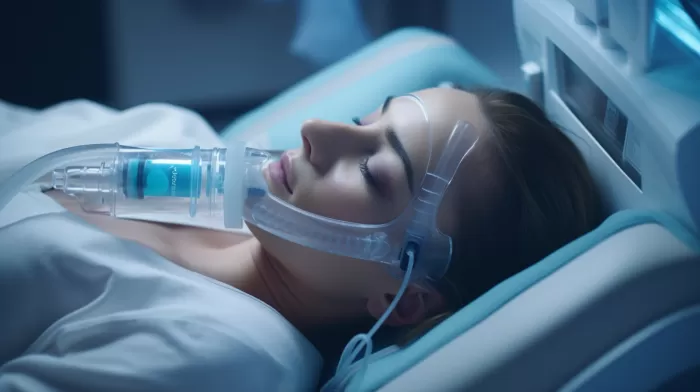Snoring and making breathing noises while you sleep may seem like minor annoyances. But they can signal life-threatening illness on the horizon. A report from the American Academy of Sleep Medicine shows that more than 25 million Americans now suffer from sleep apnea — breathing difficulties during sleep that interrupt your ability to inhale and exhale while increasing your risk for heart problems, diabetes, stroke, depression, and high blood pressure.
The Growing Epidemic of Sleep Apnea
“Obstructive sleep apnea is destroying the health of millions of Americans, and the problem has only gotten worse over the last two decades,” says Timothy Morgenthaler, president of the American Academy of Sleep Medicine and a national spokesperson for the Healthy Sleep Awareness Project (a joint effort by Centers for Disease Control and Prevention, and the American Academy of Sleep Medicine). “The effective treatment of sleep apnea is one of the keys to success as our nation attempts to reduce healthcare spending and improve chronic disease management.”
As more and more Americans struggle with obesity, poor sleep habits, and other lifestyle factors, the prevalence of sleep apnea has increased dramatically. More worrying still is that sleep apnea often goes undiagnosed, causing sufferers to experience years of health problems without realizing the root cause.
Symptoms and Consequences of Sleep Apnea
The most common indications that you suffer from sleep apnea include choking, snoring, gasping, or silent breathing pauses during sleep. In addition to these nighttime symptoms, sleep apnea sufferers may also experience excessive daytime sleepiness, difficulty concentrating, memory problems, irritability, and morning headaches.
Untreated sleep apnea can have serious consequences for your health. It can lead to cardiovascular problems like high blood pressure, heart attack, heart failure, or stroke. Sleep apnea can also lead to type 2 diabetes, obesity, and metabolic syndrome. The fractured sleep resulting from sleep apnea can contribute to mental health issues like depression and anxiety. And, of course, the excessive sleepiness associated with sleep apnea can contribute to accidents and reduced productivity.
Diagnosis and Treatment Options
If you suspect you may be suffering from sleep apnea, the first step is to visit a medical professional for a thorough evaluation. A sleep study is typically required to confirm the diagnosis of sleep apnea. This may involve an overnight stay at a sleep clinic, where your breathing, heart rate, oxygen levels, and brain activity will be monitored throughout the night.
Once diagnosed, there are several treatment options available for sleep apnea sufferers. These may include:
- Lifestyle changes: Losing weight, avoiding alcohol and sedatives, quitting smoking, and maintaining a regular sleep schedule can all help to reduce the severity of sleep apnea.
-
Continuous positive airway pressure (CPAP) devices: Many people with sleep apnea benefit from using a CPAP device while they sleep. The CPAP machine gently blows air into the nose and mouth, helping to keep the airway open and promote regular breathing.
-
Oral appliance therapy: For some people, wearing a custom-fitted dental device while they sleep can help to relieve sleep apnea. The device works by repositioning the jaw and/or tongue, preventing airway obstruction.
-
Surgery: In some cases, surgery may be recommended to remove excess tissue from the throat or to correct structural abnormalities that are causing sleep apnea.
Taking Action for Better Sleep
The American Academy of Sleep Medicine, Centers for Disease Control and Prevention, Sleep Research Society, and other partners in the National Healthy Sleep Awareness Project recommend that if you suffer any of the symptoms or signs of sleep apnea you should visit this website for more information about the problem.
If you believe you suffer from sleep apnea, don’t wait to seek help. Consult with a healthcare professional to discuss your symptoms, receive a diagnosis, and explore treatment options. Not only can addressing sleep apnea improve your nightly rest and daily functioning, but it could also help to prevent serious health complications in the future.



